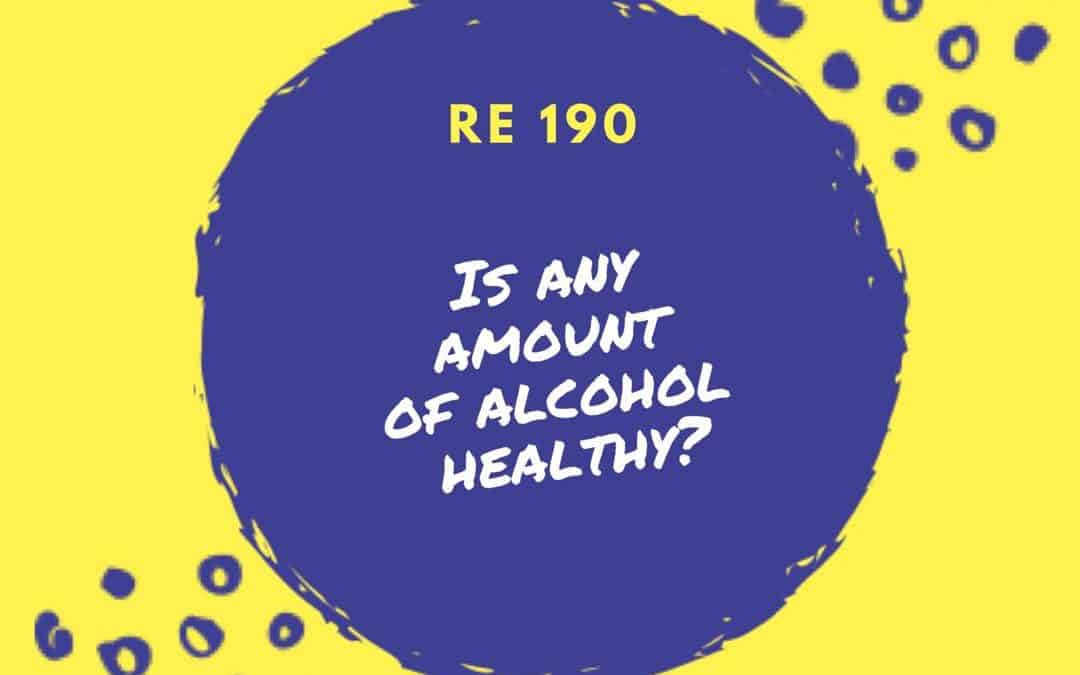
by Paul Churchill | Oct 8, 2018 | Podcast
Podcast: Play in new window | Download
Subscribe to the Recovery Elevator Podcast Apple Podcasts | | More
Jamie, with 93 days since her last drink, shares her story…
“No amount of alcohol is safe for your overall health.”
“Alcohol was the leading risk factor for disease and premature death in men and women between the ages of 15 and 49 worldwide in 2016, accounting for nearly one in 10 deaths, according to the study…”
A recent article released by CNN presents scientific studies that show the negative effects of alcohol consumption on one’s overall health.. delivering an opinion contrary to the largely pro-alcohol messages one typically finds in mainstream media.
SHOW NOTES
[9:15] Paul Introduces Jamie.
Jamie is 39, from Alberta, Canada, and has been sober for 93 days. She works in the school system and teaches fitness. She is single, with two boys and dogs and cats.
[10:51] Give is a bit of background on your drinking.
She started drinking when she was 12 years old. She wanted to fit in with the bad kids. Once she became old enough she drank much more. She got married and had a child. She lost her husband in a car accident, and her drinking increased. During her idle time she would drink heavily. She met someone who drank like she did. Her social circles also drank heavily. When she had large stretches of idle time she would drink a lot. One particular summer was extra heavy.
[16:55] Did you experience a rock bottom moment?
Her social circle was large, so there was always someone to drink with if she needed a new drinking buddy. She kept saying yes to drinks with people. She would get wasted 3, 4, 5 days in a row. She began to track her drinking on her calendar. She realized she was only drinking and recovering. She tried to join a fitness program but only lasted two weeks. She got another two weeks free and she drank the whole time. She tried dry January but only lasted 23 days. She began to moderate by saying no beer. She booked a vacation, and got blackout drunk the first night. She drank the entire trip and cried the whole way home. She tried the fitness program again. She tried dry January, in which she tried to quit smoking, drinking, and begin a healthy diet at the same time. She began bullet journaling. She went to see Tony Robbins. She created a program to keep herself in check, then she would binge on the weekends. She had a horrific morning after a night of binge drinking. She met a sober mom, and immediately didn’t want to hang out with her. She called her and she recommended a counselor. She went to see an addiction counselor. She didn’t want to stop drinking. He mentioned the word “alcoholic” and she denied it. She went to her first meeting and she had a breakthrough.
[33:25] How did you quit?
She went to her first meeting, and it was full of influential AA people. Lots of milestones, and she figured out she belonged there. She experienced a myriad of emotions. She knew that her life was going to change forever.
[34:58] What happened after that meeting?
She was embarrassed about going to the meeting. She realized her girlfriend was an addiction counselor. She found the strength to go. She discovered she was battling a brain disorder and that it wasn’t her fault. She still battled the stigma of being labeled an alcoholic.
[39:27] Did you have cravings?
She was ready. She finally wanted to be good to herself. She was done hurting other people, and herself. She wanted to be there for her children, but she wasn’t really there for herself. She knew that if she didn’t deal with it, she would have been dead within 5 years.
[42:28] What’s working for you? How are you staying sober?
She listens to the podcast. She is now choosing to user her free time to work on herself. She’s established her community. She has a big list of phone numbers for support. She’s told all of her friends. She can call her sponsor about anything. She leans on her sponsor quite a bit. She didn’t give herself a choice. She “gave it all away”. It’s been working wonders.
[45:45] Rapid Fire Round
- What was your worst memory from drinking?
The anxiety the morning after, or waking up in the middle of the night in a panic. Not being comfortable in her own skin. Setting herself back.
- Did you ever have an “oh-shit” moment?
When her friends asked her to go out and she needed to drink a case of beer. She lied to her friends.
- What’s your plan moving forward?To be kind to herself. To remember how far she’s come. To stay connected. To develop her relationship with her higher power. To work her program wholly.
- What’s your favorite resource in recovery?
- What’s the best advice you’ve ever received (on sobriety)?
That it isn’t a moral defect. It’s not her fault. To get out of her head. To eat the ice cream, it’s ok.
- What parting piece of guidance can you give listeners who are in recovery or thinking about quitting drinking?
Sobriety is awesome. You’re not missing out on anything. You’re gaining! The sponsor, the accountability, the community has been number 1.
- You might be an alcoholic if…
“…if you bring six pack when you walk your dog. Every time he pees, you have a drink.”
Resources mentioned in this episode:
Support for today’s episode is brought to you by RXBAR. Visit Rxbar.com/elevator/ and enter the promo code elevator at checkout for 25% off your first order.
Connect with Cafe RE– Use the promo code OPPORTUNITY for your first month free
Sobriety Tracker iTunes
Sobriety Tracker Android
Sober Selfies! – Send your Sober Selfie and your Success Story to info@recoveryelevator.com
“We took the elevator down, we gotta take the stairs back up, we can do this!”
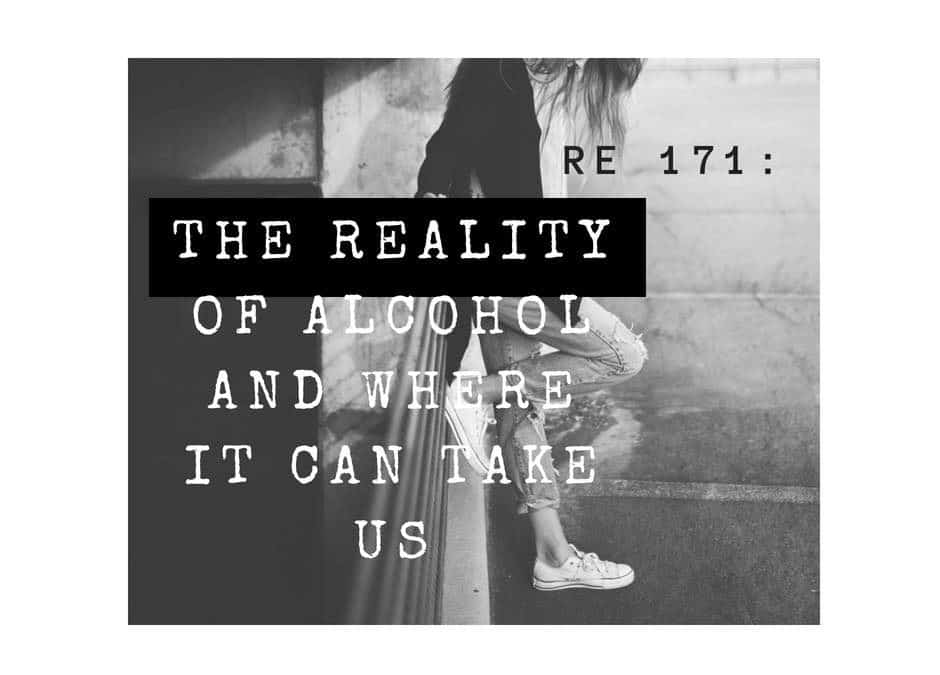
by Paul Churchill | May 28, 2018 | Podcast
Podcast: Play in new window | Download
Subscribe to the Recovery Elevator Podcast Apple Podcasts | | More
The path of sobriety is not always easy. Many of us will stumble, fall, relapse and find ourselves back at square one. It’s not the end of the world. When we relapse, we have the opportunity to learn from our mistakes and, if necessary, reinvent ourselves.
Tamara, with 48 days since her last drink, shares her story…
SHOW NOTES
[3:57] Paul Introduces Tamara.
Tamara is 31 years old, from Nashville, Tennessee. For fun, she enjoys cooking, the outdoors, and spending time with loved ones.
[7:00] When did you realize you wanted to quit drinking?
Her first drink was on her 21st birthday. She drank through her 20s. She had alcohol abuse in her family. She thought her family was wrong by hiding alcohol from her. She thought it was fun. The progression of her alcoholism snuck up on her. She assumed it was healthy and normal. She went through a big period of change that left her unsatisfied.
[15:30] Did you put any rules into place when you tried to quit drinking?
Yes. She would try to limit other bad activities and use drinking as a reward. She tried to abstain for a month with a friend. She convinced herself to keep drinking. Each year the rules would narrow until she stopped trying to do her cleanses. She began to realize that she had a problem but she kept trying to fix other areas of her life, hoping it would fix her drinking. Her ex told her about recovery elevator. After listening she realized that she wasn’t alone.
[22:28] After drinking, what was it like without alcohol?
Weird. She experienced physical withdrawal symptoms like anxiety. Then she felt great.. experienced a pink cloud.
[24:40] Has everyone in your life been on board with your lifestyle change?
No. Her family and coworkers have been supportive but not everyone.
[26:45] What do you think brought on your relapse? What did you take away?
She went on a work trip. Everyone else was drinking. She didn’t yet have her recovery ingrained enough to handle the environment. She now is working on a more holistic recovery strategy.
[29:23] Walk us through a typical day in your recovery.
She tries to work on her recovery daily. She says the prayer of serenity. She meditates. She tries to avoid negative news and media. Her morning routine helps her stay in the right frame of mind to handle anything life can throw at her.
[31:20] What have you learned about yourself in sobriety so far?
She learned that she deserves the things that she wants. She sees more of the bigger picture now. She’s not afraid to relate to different kinds of people. She focuses more on her values and ignores the noise. She makes more of an effort to show up and work on herself first.
[32:50] What’s on your bucket list in sobriety?
She wants to work the steps.
[33:30] Rapid Fire Round
- What was your worst memory from drinking?
- Did you ever have an “oh-shit” moment?
She started cutting herself to help deal with the deep depression she was experiencing. It helped her feel in control of herself. One night she cut herself too deeply and she had to go to the emergency room.
- What’s your plan moving forward?She’s going to continue to work it to her best ability. She wants to continue adding tools to her recovery portfolio.
- What’s your favorite resource in recovery?Cafe RE. The community in your online recovery community.
- What’s the best advice you’ve ever received (on sobriety)?
“What is your motivation?” When there is no clear-cut ethical guide, she has to get to the bottom of her own intentions.
- What parting piece of guidance can you give listeners who are in recovery or thinking about quitting drinking?
You are not alone. The recovery community is huge and willing to share with you. Share your story. There is no shame.
- You might be an alcoholic if…
“when discussing oral surgery with your physician, your first concern is how quickly you will be able to drink wine afterwards.”“What’s in the water bottle? … vodka.. just kidding! .. it’s actually vodka.”
Resources mentioned in this episode:
Connect with Cafe RE– Use the promo code Elevator for your first month free
Sobriety Tracker iTunes
Sobriety Tracker Android
Sober Selfies! – Send your Sober Selfie and your Success Story to info@recoveryelevator.com
“We took the elevator down, we gotta take the stairs back up, we can do this!”
Show notes for this epsiode will be uploaded Tuesday, May 29th, 2019.
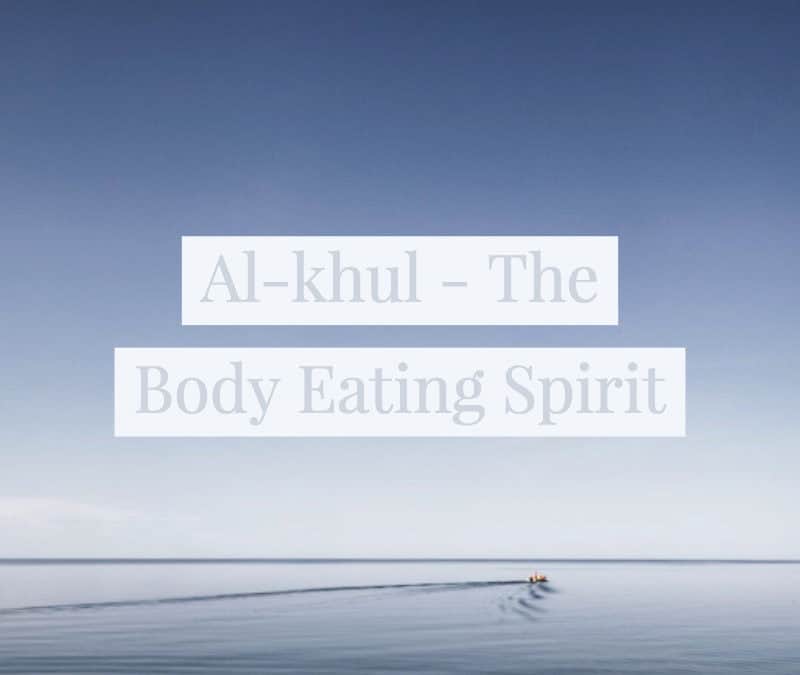
by Paul Churchill | May 9, 2018 | Blog
“Al-khul (Arabic, meaning ‘body-eating spirit’. Etymological root of ‘alcohol’.) – By Alissa Kingham. Alissa can be reached at alknrk@aol.com.
The spider lived on the back of her head. She wasn’t sure exactly how long it’d been there. She only became truly aware of its presence when she first started giving it permission to bite her.
The spider had been with her for so long, it had become so accustomed to her, that it had learnt to whisper in her ear, speaking mistruths in a voice that sounded so much like her own that it became impossible for her to distinguish between its lies and her own thoughts. It whispered to her when she was by herself, and when she was surrounded by people. The spider had no care for what she was thinking, feeling or doing. Her life was lived with the spider’s muted tones repeating persistently, never faltering, like a sinister backing track that only she could hear playing.
Her life was changed from the first bite. And neither the sinking of its fangs into her flesh nor the spread of its venom caused her any pain. It induced a feeling of euphoria, incited a sense of overwhelming tranquility like nothing she’d ever known before. The way she’d experienced both the world outside of herself and her own internal existence up until that moment had been perpetually uncomfortable. It was too bright, too loud, too unpredictable. Every interaction felt jarring. She moved through life in a skin that didn’t fit, every motion requiring so much physical exertion that she’d been exhausted for as long as she could remember. The first bite felt like finally coming home.
The venom flowed through her veins slowly, its warmth crawling languidly through every limb. The spider spun a silken web, gently lowering it before her eyes, dulling her vision until she no longer felt like she was staring into the sun. The edges became blurred, the colours muted, and her perception softened. The fear she carried dissipated, every other importance ceased to matter. She allowed herself to be entirely alone, safe in the knowledge that still she was held.
The spider would only bite her when she allowed it to. At first, she would only grant it permission occasionally. She was suspicious of the ecstasy it bought her, and her craving for its poison frightened her. But it continued to whisper, pouring words into her ear like honey, breaking her resolve until she began to forget why she was fighting it to begin with.
So over time, the bites were administered more frequently. She waited for them and welcomed their arrival. The spider grew bigger, its voice stronger and its influence more powerful. She could no longer distinguish herself from her inhabitor, and she could barely remember the person she had been before it took hold.
Each bite continued to deliver the guaranteed oblivion, but they also started to induce other effects. The area around the wound where the fangs were inserted started to rot. The punctured skin wept and blistered, releasing the unmistakable scent of festering tissue so pungent that she began to avoid being close to anyone else. But the spider thrived on the stench, feasting off of the decay. She didn’t need people near her anyway, it told her, because she was never alone. The only respite from the increasing agony of last bite was the arrival of the next. And so still, infected and in pain, she was held.
She knew where she was headed. Even in the beginning, in the midst of the elation the spider had initially bought her, deep down she’d always known what the outcome would be. She sensed the end, drawing ever closer, and she felt herself running blindly towards it as if the spider had attached its web to her toes and was controlling her forward motion like a malevolent puppeteer. But she didn’t fear the descent. She didn’t fear anything, not anymore. Because she was never alone. Because still, she was held.”
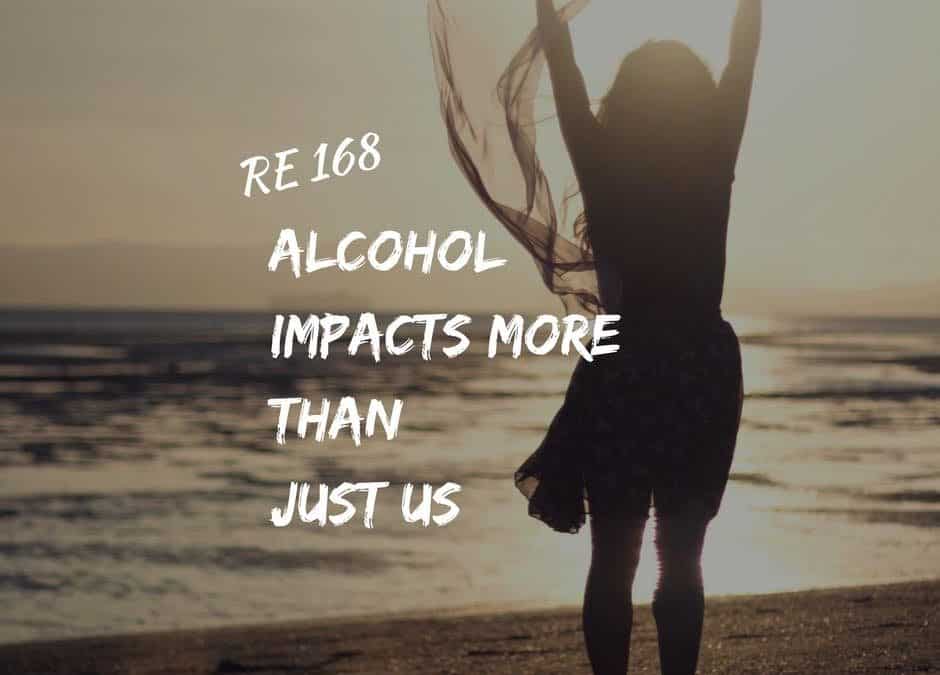
by Paul Churchill | May 7, 2018 | Podcast
Podcast: Play in new window | Download
Subscribe to the Recovery Elevator Podcast Apple Podcasts | | More
When we are in the throws of an addiction to alcohol, the effects go beyond just us. They affect our family and those closest to us.
After running the podcast for 3 years, Paul has begun to notice patterns emerging. One of the biggest patterns he noticed might be the key to successful sobriety: Accountability. Getting sober can be daunting, and the people around you are owed an explanation. The act of saying it out loud not only makes it real, but makes others aware of what you are trying to achieve. They can help keep you on track when things get difficult, and if your drinking has hurt anyone else in the past, it can be the first step towards forgiveness.
Telling the people in your life that you are trying to get and stay sober is probably the most important thing you can do to affect your chances of success.
Amy, with 422 days since her last drink, shares her story…
SHOW NOTES
[9:30] Paul Introduces Amy.
Amy is 33 years old, from Wisconsin, married with 3 kids. She works in human resources in healthcare, but is about to leave her job and focus on her family full time. She likes yoga, and the outdoors.
[12:00] What are your plans now that you are sober?
She wants to get more involved in her community.
[13:00] When did you realize it was time to quit drinking?
She was having a hard time moderating, was losing control.
[13:33] What rules did you have in place during your moderating phase?
She and her husband tried only drinking on weekends, only when at restaurants, only certain kinds of drinks, only on payday, etc. It didn’t work.
[16:30] Is your husband supportive of your decision to get sober?
Yes. He helps by not drinking around her and by keeping alcohol out of the house.
[17:07] When did you start drinking?
In high school. It got out of control in college. She adopted a party girl personality. She was drinking 4 beers a night. It progressed into a problem once she went through her first divorce. She felt hopeless and used alcohol to cope.
[21:57] How did you decide to quit?
She was drinking daily, feeling terrible. Some good things began to happen and she felt that it lifted her out of her funk. She got a new job, which enabled her to pay down her debt and she started taking care of herself again. She fell in love. The drinking was still crazy and she couldn’t control it. She tried to take a break, but it wouldn’t work. She was writing a lot in her journal, then went on an 8-day binge. She woke up from that and had hit rock bottom. She decided to quit on that day.. the difference was that she was ready to accept her situation.
[27:30] What was it like to reach the point of acceptance?
It was liberating. Acceptance brought self forgiveness, which enabled her to start moving forward in a new way.
[31:30] How did you do it? How did you quit?
She started to binge listen to recovery podcasts, she read This Naked Mind. She focused on being kind to herself. She reached out to sober friends and family. Connecting with close relatives and friends helped boost her confidence. They helped her get through the first few weeks. She began to see the bigger consequences of drinking on her health, career, relationships. Her husband supported her fully.
[34:37] At what point did you begin to see the benefits?
Day 2. The first few weeks there were headaches, sleep issues, etc. She experienced the pink cloud. She found out she was pregnant the month she quit drinking. She started looking at the bigger picture. She experienced normal activities as a sober person and was amazed at the difference.
[39:46] What’s on your bucket list?
She’s excited to be a stay-at-home mother soon. Many of her friends are reaching out to her in support of her sobriety.
[42:33] Rapid Fire Round
- What was your worst memory from drinking?Going to a concert and getting drunk, getting into a fight and walking around completely blacked out.
- Did you ever have an “oh-shit” moment?She woke up one day with a damaged car but didn’t remember what caused it.
- What’s your plan moving forward?To really stay active in her community. To focus on her family. To meditate more. To exercise. Hang out with the family. Reading in the evening to wind down.
- What’s your favorite resource in recovery?
- What’s the best advice you’ve ever received (on sobriety)?Put your sobriety first. Before kids, marriage, career.
- What parting piece of guidance can you give listeners who are in recovery or thinking about quitting drinking?Educate yourself about alcoholism. The truth will give you the confidence to go forward knowing what you have to do. Life is too short to be drunk.
- You might be an alcoholic if…You fear being a stay at home because you assume you will be drunk the whole time.
Resources mentioned in this episode:
Today’s podast episode is brought to you by Zip Recruiter and Casper.
Try Zip Recruiter today for free.
Get $50 off select mattresses by visiting Casper and us the promo code Elevator
This Naked Mind – A book by Annie Grace
In the Realm of Hungry Ghosts – A book by Gabor Maté
Connect with Cafe RE– Use the promo code Elevator for your first month free
Sobriety Tracker iTunes
Sobriety Tracker Android
Sober Selfies! – Send your Sober Selfie and your Success Story to info@recoveryelevator.com
“We took the elevator down, we gotta take the stairs back up, we can do this!”
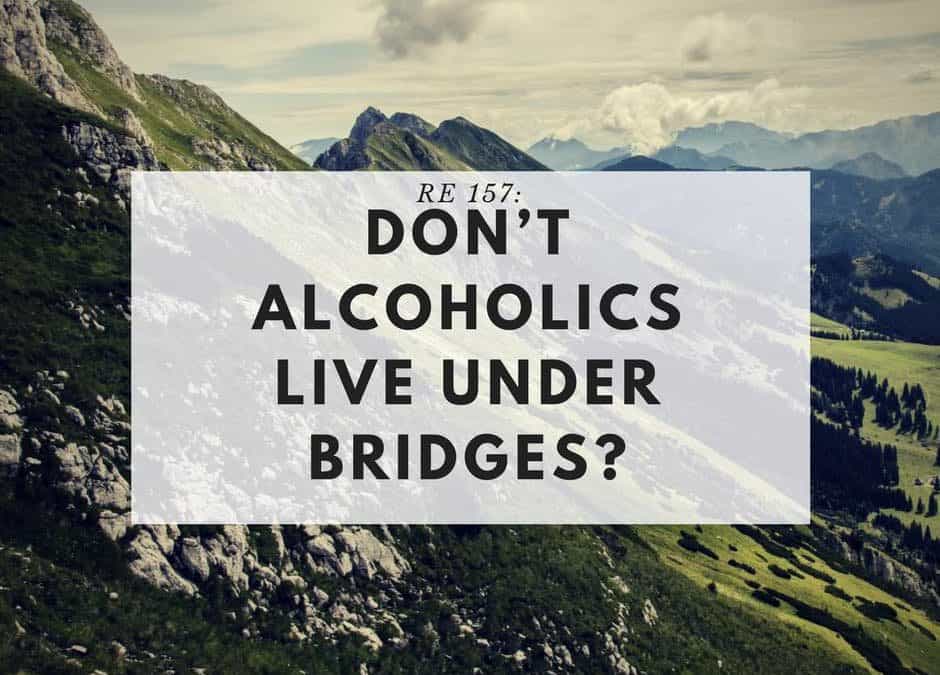
by Paul Churchill | Feb 19, 2018 | Podcast
Podcast: Play in new window | Download
Subscribe to the Recovery Elevator Podcast Apple Podcasts | | More
Many of the stereotypes surrounding alcoholism don’t match up with reality. The image of the homeless guy holding the bottle in a brown paper bag and living under a bridge doesn’t correctly represent the average alcoholic, despite the image’s popularity. Recent data shows that only 3-5% of alcoholics are homeless or on the street.
As a group, alcoholics have enhanced dopamine receptors. They tend to be overachievers, over-workers, over-thinkers, and over-creators. They come from many demographics and many age groups. When Paul compiled the data for the RE podcast, he wasn’t surprised to find a diverse pool of listeners, both married and single, educated and uneducated, rich and poor.
Kim, with less than 1 year since her last drink, shares her story:
SHOW NOTES
[12:42] Paul Introduces Kim.
5 months sober. From Buffalo NY, lives in Chicago, 36yo, works in digital marketing. Loves billiards, volleyball, spa and travel. Currently working towards a masters in digital communication.
[15:00] When did you begin to realize you had a problem with alcohol?
She fell ill and ended up in the hospital with a bleeding stomach. The doctor recommended that she quit. She quit briefly but ended up relapsing and found herself back in the hospital again. Second doctor also recommended sobriety.
[18:40] What was it like when the second doctor told you it was life or death?
The second doctor gave her lots of attention and encouraged her to get into AA. She was humbled and blown away by the personal touch. The doctor’s previous patient was someone in the later stages of alcoholism and he warned her not to follow the same path. She then got 8 months of sobriety after.
[20:27] Did you end up going to your first meeting?
She did. She gave it a shot but it didn’t feel like a good fit. She didn’t connect with the people.
[21:44] How did you come to relapse after the 8 month period?
She took a trip to Mexico, and saw everyone around her drinking, which enabled her to justify having a few drinks. She decided she was treating herself.
[22:40] How was the rest of the vacation?
She didn’t have any problems in Mexico, but she convinced herself that it wasn’t a big deal and she opened the door to alcohol coming back in to her life. She gradually slipped back in to her old habits.
[24:25] What happened after you begin to let alcohol back into your life?
She spent a lot of time hungover. She spent a lot of money at IV ME
[25:16] Were you sick and tired of being sick and tired?
She was feeling run down and depressed. At this point she knew better and she was disappointed in herself.
[26:20] During your Labor Day holiday, were you drinking by yourself?
Yes. She felt left out and depressed. She doesn’t remember doing her Fantasy Football League draft.
[28:33] What was the next day like for you?
She called an Uber, but made it turn around because she didn’t feel up to it. Later that night she went to her therapist and he helped her see that she was choosing her behavior.
[30:00] Were you fully honest with your therapist?
Yes, he knew about her behavior.
[30:42] Have you figured out why you were drinking?
She thinks it’s because she wants to fit in and be included.
[33:33] What would you consider your rock bottom moment?
Definitely in the hospital. Repeating the process, paying the money again even though she knew what the problem was. This time she wanted it to be different. She needed to know her other options. She ended up finding Smart Recovery. She began exploring other options she had never considered. She finally clicked with a sponsor and has even flown out to visit her in person.
[36:27] What was the Dallas Cafe RE retreat like for you?
She loved it. She found validation. It made her feel more comfortable. She found that there are other people just like her.
[39:30] What are your thoughts on Smart Recovery?
It’s more science based. It focuses on thinking and behavior, goal setting. It focuses on short term goals. Everyone shares in the meeting.
[40:53] What is your proudest moment in sobriety?
Sharing her story to help others. She’s blogging and making videos and she’s getting feedback. She has a recovery website: Brighter Mornings.
[41:49] What was it like to publish for the first time?
She planned the release. The accountability was scary for her. She became excited at the thought of reaching people that might be struggling with alcohol.
[43:15] Rapid Fire Round
- What was your worst memory from drinking?
Waking up at an ex’s house, not knowing how long she had been there or what she was doing there.
- Did you ever have an “oh-shit” moment?
Sitting in the I.V. Me facility, running out of money.
- What’s your plan moving forward?To continue to research. Build a community. Keep her sobriety blog and brunch club.
- What’s your favorite resource in recovery?The Happy Hour. The Naked Mind. Smart Recovery. Recovery Elevator. Meeting new people in person and online from the sober community.
- What’s the best advice you’ve ever received (on sobriety)?
It’s not changing something, it’s changing everything.
- What parting piece of guidance can you give listeners who are in recovery or thinking about quitting drinking?
Don’t question it. Just do it. It’s not easy, but it’s worth it.
- You might be an alcoholic if…
If you call into your job hungover on day 3.
Resources mentioned in this episode:
Brighter Mornings – Kim’s recovery website
Connect with Cafe RE– Use the promo code Elevator for your first month free
Sobriety Tracker iTunes
Sobriety Tracker Android
Sober Selfies! – Send your Sober Selfie and your Success Story to info@recoveryelevator.com
“We took the elevator down, we gotta take the stairs back up, we can do this!”







